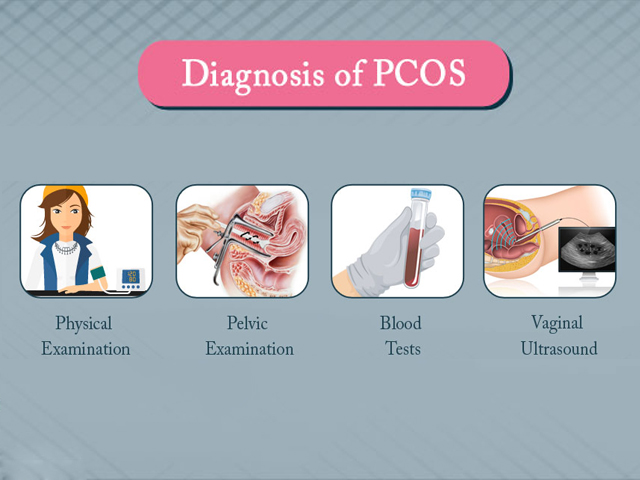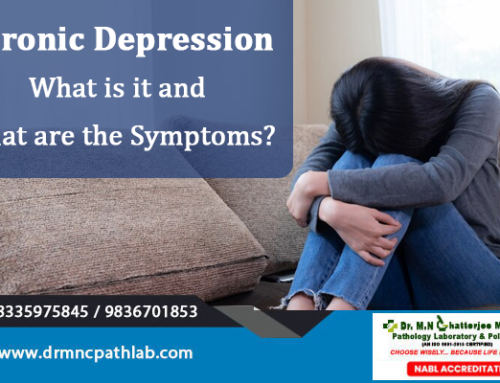Polycystic Ovary Syndrome is a common hormonal condition that may lead to problems related to fertility, period, skin and weight. It also gives rise to the risk of other health problems, like type 2 diabetes. No single test is available that can detect whether one has PCOS or not. After getting an idea about your symptoms, the doctor will recommend undergoing blood tests and a physical exam in a pathology lab in Hooghly to help detect if you have this condition.
Physical Exam
The physician may check your BMI (body mass index), blood pressure and waist size. They may also inspect your skin to look for acne, discolored skin or excessive hair growth which are all common symptoms of PCOS.
-
Pelvic exam:
It is quite similar to getting a regular checkup. The doctor will inspect your body and feel certain areas including the cervix, vagina, fallopian tubes, uterus, rectum, and ovaries to check for any abnormalities.
-
Sonogram (Pelvic ultrasound):
It is meant to get an image of your ovaries. While undergoing this test in a diagnostic centre in Hooghly, you are asked to lie down. The physician will then place an ultrasound tool in your vagina to detect if there are cysts in the ovaries. The lining of your uterus is usually found to be abnormally thicker if you are not getting your periods regularly.
In case of PCOS, a person’s ovaries are found to be up to 3 times bigger than normal. This ovary change is detected through an ultrasound in 90% of women suffering from PCOS.
Tests
-
Bloodtests:
The doctor may advice you to undergo a blood test in a blood collection centre in uttarpara. The physician will collect a tiny amount of blood from any vein present in the arm. This test will measure the levels of the following hormones:
-
- 1] Follicle-stimulating hormones (or FSH) are known to affect one’s ability to conceive. If one has PCOS, this level is found to be either normal or lower than normal
- 2] Luteinizing hormone (or LH) helps in ovulation. It may be higher than the normal level.
- 3] Testosterone, a type of sex hormone, is found to be higher in women suffering from PCOS.
- 4] Estrogens, a group of hormones responsible for menstruation, may be of a higher level in case of PCOS.
- 5] The level of sex hormone binding globulin (or SHBG) could be lower than the normal range.
- 6] Androstenedione, a sex hormone, could be higher than normal.
-
Human chorionic gonadotropin(or HCG) test:
It is a hormone test meant to detect if someone is pregnant.
-
Anti-Mullerian hormone (or AMH) test:
It is used to test the functioning of one’s ovaries and to determine how far off one’s menopause could be. The levels are usually higher in case of PCOS.






